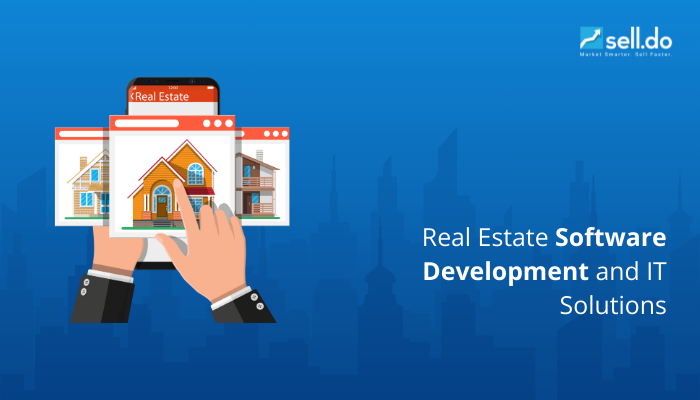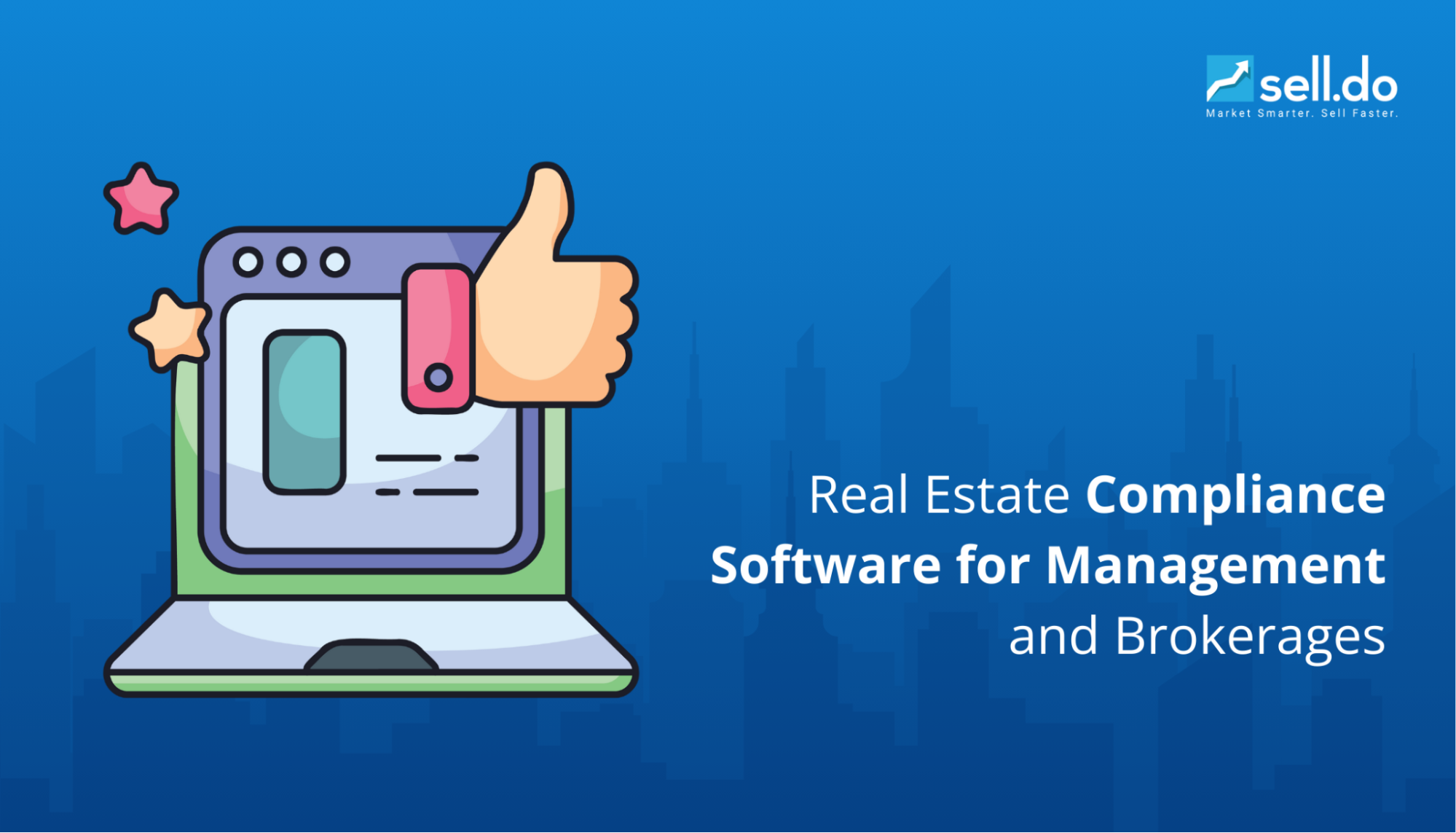Artificial Intelligence (AI) is changing the way real estate works. It automates tasks, improves decision-making, and helps businesses connect with buyers and sellers more effectively. From property valuations and market predictions to chatbots and automated marketing, AI makes every step of the process smarter and faster.
The demand for AI in real estate is growing fast—the market is expected to reach $1803.45 billion by 2030, with a CAGR of 35%. More professionals are adopting AI to generate leads, set better pricing, and offer personalized services. Using AI-powered tools gives you an advantage over your competition and helps to stay ahead.
So, without further ado, let’s get started!
Applications of AI in Real Estate
Artificial intelligence is transforming real estate by providing data-driven insights, automating processes, and improving customer interactions. Here are a few applications that are bringing innovation to the industry:
Property Valuation
Accurate property valuation is crucial for buyers, sellers, and investors. Traditional methods rely on manual assessments, which can be inconsistent. AI-driven valuation tools analyze vast datasets to provide more precise and objective property appraisals.
- AI-Powered Appraisals: Machine learning models evaluate location, amenities, historical sales data, and market trends to generate accurate property prices.
- Real-Time Data Analysis: AI continuously updates property values based on new market trends and economic factors.
Market Analysis and Predictive Analytics
Real estate professionals must anticipate market changes to make informed investment and pricing decisions. AI enhances market analysis by identifying patterns and accurately predicting future trends.
- Market Trend Forecasting: AI analyzes historical sales, economic indicators, and consumer behavior to predict property demand and pricing shifts.
- Risk Assessment for Investments: AI models help investors assess properties' potential risks and returns based on data-driven insights.
Customer Service Enhancement
A seamless customer experience is key to closing deals and maintaining client relationships. AI-powered chatbots and virtual assistants enhance communication by offering instant, personalized responses.
- 24/7 Availability: AI chatbots handle inquiries, schedule property viewings, and answer FAQs at any time.
- Personalized Interactions: AI learns customer preferences and suggests relevant properties based on browsing history and past interactions.
Property Management Automation
Managing rental properties involves handling maintenance requests, tenant communications, and lease agreements. AI simplifies these tasks, reducing workload and improving tenant satisfaction.
- Automated Maintenance Requests: AI-powered platforms detect issues and schedule repairs without manual intervention.
- Smart Lease Management: AI organizes rental agreements, tracks payments, and ensures timely renewals.
- Enhanced Tenant Communication: AI chatbots respond instantly to tenant inquiries, improving engagement and retention.
You can also check our blog, Best Email Marketing Software for Real Estate Agents and Brokers, to optimize your email marketing campaigns.
Lead Generation and Marketing
AI helps real estate businesses attract potential buyers and sellers by analyzing data and crafting targeted marketing strategies. This ensures better lead conversion and optimized ad spending.
- AI-Driven Audience Targeting: Machine learning identifies high-intent buyers and sellers based on online behavior and demographic data.
- Automated Marketing Campaigns: AI personalizes email and social media marketing efforts, ensuring prospects receive relevant property listings.
- Optimized Ad Placement: AI analyzes ad performance in real-time, adjusting bids and targeting for maximum return on investment.
Digital Transactions
AI enhances security in real estate transactions by identifying fraudulent activities and streamlining payment processes.
- Fraud Detection: AI analyzes transaction patterns and flags suspicious activities, reducing financial risks for buyers and sellers.
- Automated KYC Verification: AI-powered systems speed up identity verification, ensuring secure and compliant property transactions.
- Smart Contracts: AI automates contract execution, minimizing manual errors and expediting deal closures in India's real estate sector.
Document Digitization
AI simplifies real estate documentation, making transactions smoother and reducing paperwork-related delays.
- OCR Technology: AI-powered Optical Character Recognition extracts key details from legal documents, loan applications, and agreements.
- Faster Loan Approvals: Automated document processing speeds up approvals for home loans and real estate financing.
- Secure Digital Records: AI helps financial institutions maintain tamper-proof digital records, improving accessibility and compliance.
Enhanced Inventory Management
AI helps developers and brokers manage property inventory efficiently, preventing overstocking or underselling.
- Demand Forecasting: AI analyzes market trends to predict demand, ensuring optimal property allocation.
- Real-Time Inventory Updates: AI-powered dashboards track available units, pricing fluctuations, and sales performance.
- Automated Alerts: AI sends reminders about property availability, helping real estate firms optimize revenue.
Virtual Property Tours
AI transforms property viewing by offering immersive and interactive experiences.
- AI-Generated 3D Tours: Buyers can explore properties remotely through high-quality virtual tours.
- Enhanced Visualization: AI-driven staging tools help clients visualize furnished spaces before purchasing.
- Time-Saving for Buyers and Brokers: Virtual property tours reduce the need for physical site visits, making the buying process more efficient.
By integrating AI, businesses can enhance decision-making, improve customer experiences, and gain a competitive edge. Here’s how AI is transforming real estate operations for the better.
Recommended: Understanding Proptech and Its Use in the Real Estate Industry.
Benefits of AI Integration in Real Estate
AI in real estate is transforming how properties are bought, sold, and managed. Here’s how integrating AI benefits the industry:
- Faster and Accurate Decision-Making: AI analyzes large datasets instantly, helping real estate professionals make informed decisions on pricing, investments, and market trends.
- Higher Lead Conversion: AI scores and prioritizes leads based on intent, allowing agents to focus on potential buyers who are more likely to convert.
- Improved Client Experience: AI chatbots, virtual tours, and smart property recommendations provide a seamless and personalized customer journey.
- Cost Savings Through Automation: AI reduces marketing spend, administrative workload, and human errors, cutting operational costs.
- Efficient Property Management: AI automates maintenance tracking, rent collection, and tenant communications, ensuring smooth operations.
- Faster Transactions: AI-driven document processing, smart contracts, and automated loan approvals speed up buying, selling, and renting.
While AI offers many benefits, it also comes with certain challenges that businesses must address.
Check out our blog, Top Real Estate Social Network Platforms, and learn about their strategies to optimize your social media channels.
Challenges of Implementing AI in Real Estate
Here are certain challenges that may arise when implementing AI in your real estate business:
- Data privacy and security concerns: Handling sensitive client and transaction data requires strict compliance with data protection laws.
- Potential biases in AI algorithms: AI models can reflect biases from training data, affecting property valuations and customer recommendations.
- Need for continuous learning and adaptation: AI tools require ongoing updates to stay relevant to market trends and regulatory changes.
- Need for a dedicated real estate solution: Generic AI solutions may lack industry-specific features, making specialized real estate AI tools a better fit.
AI has its challenges, especially when using generic tools that don’t fully meet real estate needs. A dedicated solution can bridge this gap, making AI more effective for the industry. This is why we recommend using Sell.Do!
Sell.Do – The AI-Powered Real Estate CRM Built for Your Business

Sell.Do is a trusted, AI-powered Real Estate CRM designed to streamline sales, marketing, and business operations exclusively for real estate professionals. Unlike generic CRMs that fail to meet industry-specific needs, Sell.Do automates lead management, optimizes sales processes, and enhances customer interactions to help real estate developers, brokers, and agencies sell faster and smarter.
Trusted by over 1,000 developers worldwide, Sell.Do has been a leader in real estate technology since 2012, offering a decade of expertise. It is also highest-rated for ease of use and performance on G2, making it the preferred choice for real estate businesses.
Key Features of Sell.Do
- Automated Lead Capture: Instantly collects and tags all your leads from multiple sources, including websites, digital ads, IVR, chatbots, and offline data.
- Intelligent Lead Scoring: AI-driven analysis ranks leads based on their likelihood to convert, helping sales teams focus on high-potential prospects.
- Smart Lead Distribution: Automatically assigns leads to the right sales reps based on performance and availability.
- AI-Driven Communication: Omnichannel support for calls, WhatsApp, email, and SMS, ensuring seamless customer engagement.
- Predictive Sales Insights: AI-powered analytics optimize sales strategies, agent performance, and revenue forecasts.
- Automated Follow-Ups & Escalations: Ensures no lead is left unattended with scheduled reminders and auto-escalation mechanisms.
- Marketing Automation: AI-powered bulk email, SMS, and WhatsApp marketing for precise customer targeting.
- Inventory Overview: AI-driven cost sheet management, payment scheduling, and revenue tracking.
- Performance Tracking: Monitors sales efficiency, response times, and agent productivity with real-time data insights.
Sell.Do has helped real estate leaders like Mahindra Lifespaces, Amanora Park Town, and Embassy Group boost bookings, manage 10,000+ leads, and enhance customer experience. Check our case studies to see how we can support your goals.
Conclusion
AI and ML are transforming the real estate industry, making everyday processes smarter and more efficient. These technologies are changing how real estate professionals work, from automating lead management and personalizing customer interactions to improving property searches and pricing strategies.
But technology alone isn’t enough—it needs to be tailored to real estate’s unique challenges. That’s where Sell.Do stands out. Built specifically for real estate, it offers AI-powered automation, intelligent lead scoring, and seamless omnichannel communication, helping developers, brokers, and agencies close deals faster and engage better.
Contact Sell.Do today and experience the difference it can make!






Leave a comment
Comments (0)
Be the first one to comment.